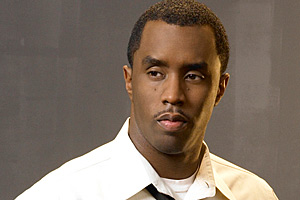Throughout A Raisin in the Sun, Lorraine Hansberry constructs Walter’s character in a complex way. Early in the play, Hansberry portrays Walter as a selfish, narcissistic man who wants to lead his family but cannot fathom his personal weakness: immaturity.
 |
| Sean "Diddy" Combs as Walter Younger |
Walter has ample opportunities to support his family but is oftentimes blinded by his overzealous goals. His lack of concern for the Younger’s desires’ are displayed through his actions. He possesses an uncanny ability to shut the goals of his family members down. To reciprocate this, Beneatha sarcastically implies that Walter, like many other men, will “lead [them] out of the wilderness [and] into the swamps” (38).
Walter’s clash with his family resembles a lack of experience. Replacing the role of his father, which seems to be his intent, is not a simple task. Walter struggles with gaining the acceptance of his family because of his varying wishes for the Younger’s.
 Toward the end of the play, readers have a chance to evaluate Walter as he molds into the man that he always expects to be. Upon receiving a housing opportunity in an unaccepting, predominantly-white neighborhood, Walter expects to “put on a show” and accept Mr. Lindner’s offer (142). After losing the insurance money with his investment partner, he exemplifies maturity by declining the offer. This is the first time Walter makes such a pivotal decision without being harassed by his family. Walter displays the qualities of a real leader.
Toward the end of the play, readers have a chance to evaluate Walter as he molds into the man that he always expects to be. Upon receiving a housing opportunity in an unaccepting, predominantly-white neighborhood, Walter expects to “put on a show” and accept Mr. Lindner’s offer (142). After losing the insurance money with his investment partner, he exemplifies maturity by declining the offer. This is the first time Walter makes such a pivotal decision without being harassed by his family. Walter displays the qualities of a real leader.
Walter, ultimately, put his dreams for riches aside, and his family’s interest first, by declining this offer. Mama finally recognizes the authority of Walter. She says, “ My son said we was going to move and there ain’t nothing left for me to say” (148-149). Walter Younger was able to acknowledge his family’s wants without placing emphasis on his own.
Connecting link: http://allpoetry.com/Maturity
(This is a link to a poem by Philip Larkin that poetically describes a common maturation process)











